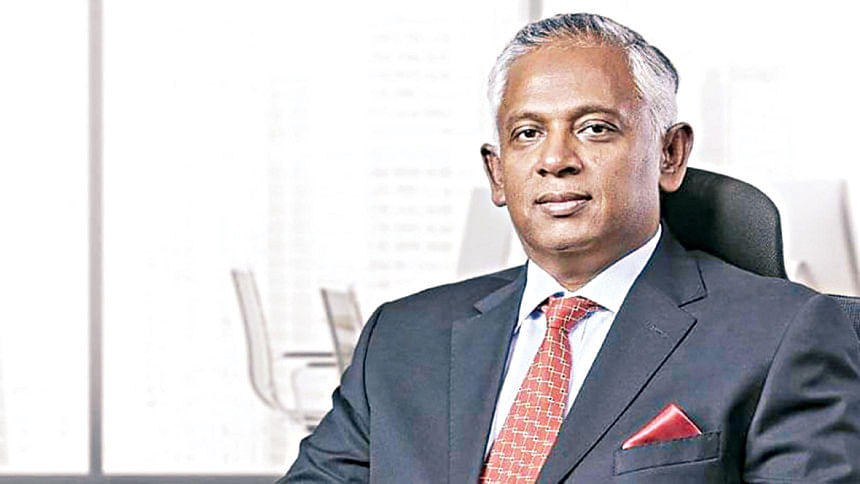From CEO to scapegoat

Being a CEO is like being the goat at a family wedding: pampered, praised, and then served at dinner. One wrong question or bruised ego, and the corner office starts to feel like a trapdoor. The same board that once called you "family" suddenly avoids eye contact. It's a shiny job title wrapped in politics, where survival depends more on diplomacy than performance.
Interestingly, whenever corporate injustice strikes, my phone somehow rings. Maybe it's fate, or perhaps I have become the country's unpaid coach, therapist, and crisis hotline for wronged executives. Just last week, two former colleagues—bright minds, strong spines—shared their heartbreaking journeys. Ishaq (not his real name), once a high-performing professional and later a CEO known for his integrity, made the mistake of exposing financial irregularities involving the owner's family. The reward? A clean chit and a swift push out the door. No explanation, no farewell, no parachute. In the years since, his life has spiralled out of control—jobless, shunned, and forced to sell his only home to fund his son's education. He's gained 20 kilos, lost his dignity, and when we finally met, he wept like a child. I didn't have the heart to remind him that this is Bangladesh!
The second case? Equally tragic, but with a touch of theatre. Another respected leader clashed with a peer, only to be blindsided by vague accusations: he "shouted at subordinates" and "created stress". An inquiry committee was quickly formed, conveniently staffed with loyalists of the complainant. No fraud, no misconduct, no sexual scandal—just the dark art of corporate chess, played by those who mastered politics better than performance.
Globally, CEOs are typically ousted for tangible misconduct, such as sexual harassment, fraud, bribery, insider trading, or conflicts of interest. In South Asia, we often prefer more mysterious causes: internal politics, ego clashes, and power games, often masked by fabricated HR drama. Today's CEOs must be masters of not only strategy and governance but also survival in environments where integrity is admired until it becomes inconvenient.
Some companies, both regional and global, proudly proclaim "zero tolerance" as a corporate anthem. Yet behind closed doors, they dispense bribes to politicians, manipulate regulatory arms, and exploit their own HR and legal policies for organisational and personal gain. It's not hypocrisy; it's advanced corporate politics—bending ethics while keeping a straight face. Zero tolerance doesn't apply when zeroes are added to the right of the cheque. The power abuser forgets that evil deeds don't stay hidden; life finds a way to return them.
Even bank CEOs aren't spared—some quietly removed, others even assaulted—yet no action, no protest, no headlines. Unity among senior leaders? A fading myth. Fear keeps everyone silent. Childhood slogans like "Unity is strength" now belong to school debates, not boardrooms. And the media? Let's not expect much when advertising cheques speak louder than truth. In the end, silence remains the only and safest strategy. In our world, standing tall often means standing alone.
Legally, CEOs and CXOs (chief experience officer) in Bangladesh live in a grey zone. The Bangladesh Labour Act 2006 protects labourers, but senior executives? They're included only when it's time to pay into the Workers' Profit Participation Fund. When it comes to protection from unfair termination or governance-related harassment, they are left fending for themselves. No unions, no ombudsman, no formal support network—just silence and shame.
India, by contrast, offers valuable lessons. SEBI's Listing Obligations and Disclosure Requirements Regulations, 2015, mandate transparent disclosures of top-level resignations. Forums like the National Association of Software and Service Companies and the Confederation of Indian Industry allow senior professionals to raise their voices.
Leaders for the future must take note: we need clear executive contract laws, independent inquiry processes, whistleblower protections, and a safe platform for CXOs. Until leadership is protected, governance will always be performative, and justice will remain optional.
Until CEOs are protected by law and principle, leadership will remain a title—glamorous outside, vulnerable and disposable within.
The writer is the president of the Institute of Cost and Management Accountants of Bangladesh and founder of BuildCon Consultancies Ltd

 For all latest news, follow The Daily Star's Google News channel.
For all latest news, follow The Daily Star's Google News channel. 



Comments